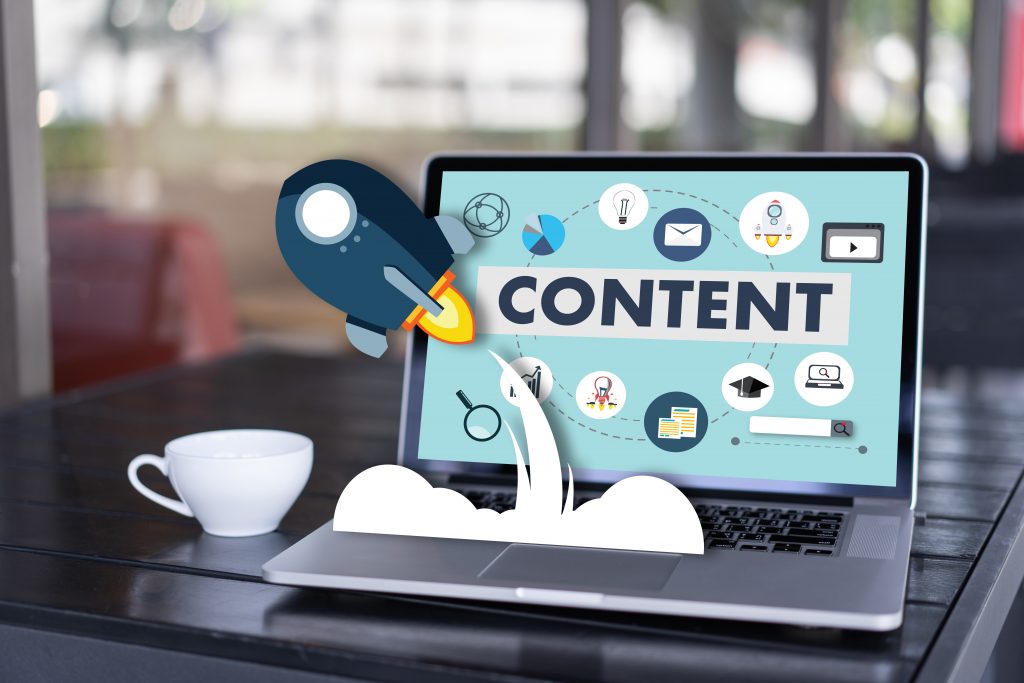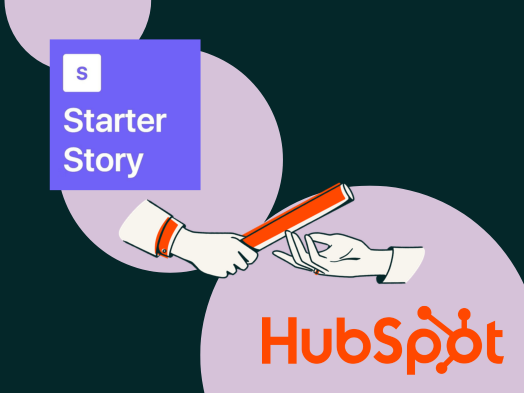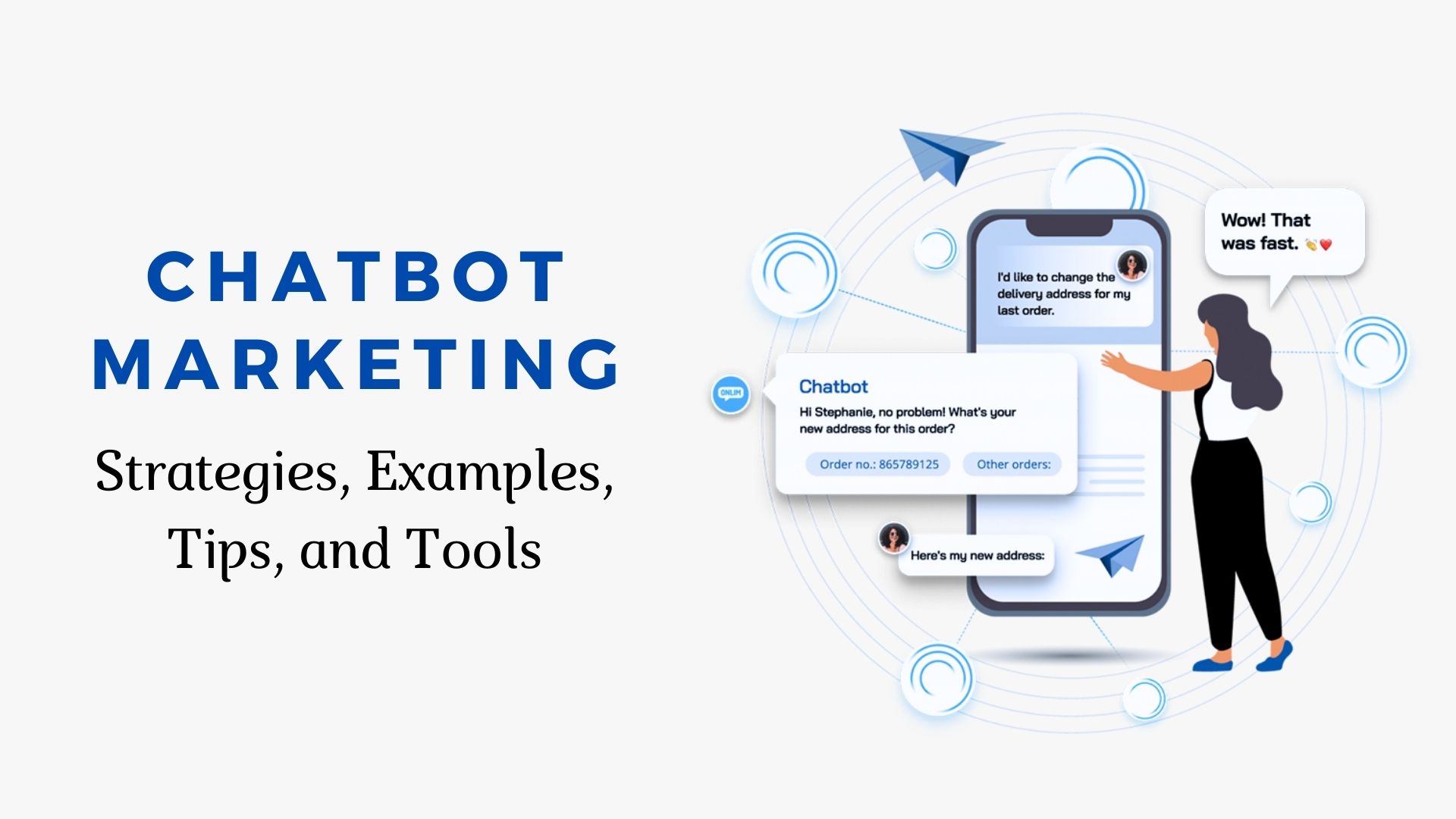Have you noticed the growing buzz around chatbot marketing lately? It’s hard to miss, right? As a digital enthusiast myself, I couldn’t help but dive deep into this exciting world of AI-powered virtual assistants. And guess what? I’ve discovered that chatbot marketing is truly revolutionizing the way businesses engage with their customers online.
So, why not join me on this exciting journey?
In this blog post, we’ll explore what chatbot marketing is all about, how it works, and the ways it’s transforming digital marketing. We’ll also share some real-life examples, handy tools, and the pros and cons of using chatbots for both B2B and B2C marketing.
Trust me, by the end of this post, you’ll be itching to jump on the chatbot bandwagon yourself!
Let’s get started, shall we?
What is Chatbot Marketing and How it Works
So, let’s kick things off by getting to the heart of the matter: what exactly is chatbot marketing?
In a nutshell, chatbot marketing is all about using AI-driven chatbots to interact with your customers on various digital platforms like websites, social media, and messaging apps.
These handy little bots can perform tasks like answering questions, offering product recommendations, and even processing transactions.
Cool, huh?
Now, I know what you’re thinking – how do these chatbots understand and respond to user inputs?
Well, it’s all thanks to a nifty technology called Natural Language Processing (NLP). NLP allows chatbots to analyze what users are saying, grasp the context, and generate relevant responses.
It’s almost like having a virtual salesperson or customer support agent available 24/7. Pretty amazing!
Use of Chatbots in Digital Marketing
Alright, now that we’ve got a good grasp of what chatbot marketing is and how it works, let’s delve into the various ways these AI-powered assistants can make a big splash in our digital marketing efforts:
1. Customer support
We all know how customers can sometimes be a bit impatient. (No judgment, we’ve all been there!) Well, chatbots are perfect for providing instant assistance and resolving common queries, helping to keep those customer satisfaction scores soaring.
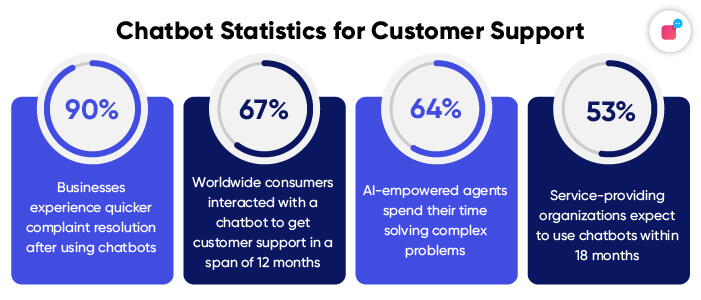
2. Sales and lead generation
Chatbots can be super helpful in engaging potential customers and gathering their contact information. It’s like having an eager team member who’s always on the lookout for new leads – without the need for coffee breaks!
3. Personalization
We all love a little personal touch, don’t we? Chatbots can offer tailored product suggestions and content based on user preferences and browsing history, making customers feel special and more likely to make a purchase.
4. Market research
Want to know what your customers really think? Chatbots can collect valuable feedback and insights, helping you stay in tune with your audience’s needs and preferences.
As you can see, chatbots can play a vital role in various digital marketing areas, making them versatile and powerful tools to have in our marketing arsenal.
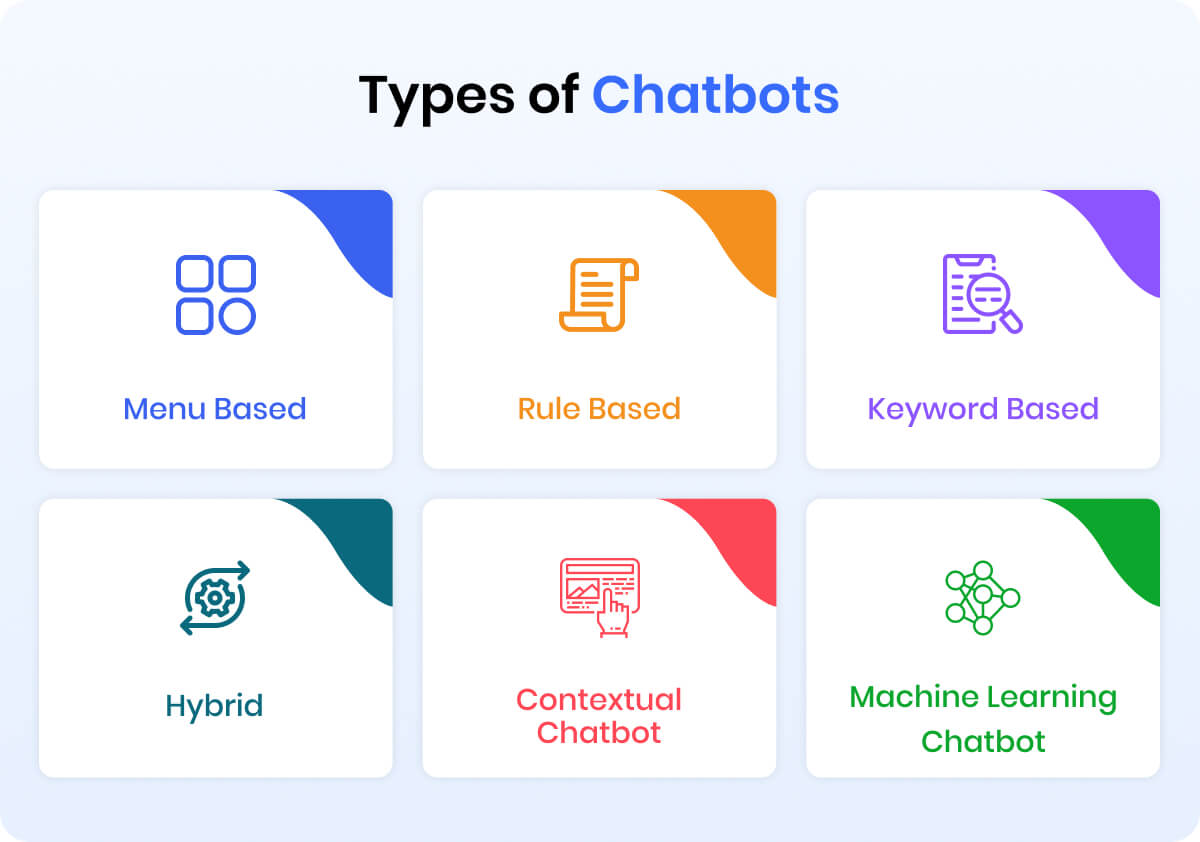
Chatbot Marketing Strategy
Alright, now that we know how chatbots can be real game-changers in digital marketing, let’s talk about crafting a killer chatbot marketing strategy. Here are some key steps to help you get started:
1. Set clear objectives
Before jumping in headfirst, take a moment to identify your chatbot’s main purpose. Are you looking to boost customer support, increase sales, or gather market research? Knowing your goals will help you design a more effective chatbot experience.
2. Choose the right platform
Consider where your target audience spends most of their time online. Is it on your website, Facebook Messenger, or maybe even WhatsApp? Picking the right platform is crucial for reaching your audience and maximizing engagement.
3. Ensure a seamless user experience
Your chatbot’s success relies heavily on how user-friendly it is. Make sure to design intuitive conversation flows, use natural language, and provide easy-to-understand options for users to interact with.
4. Measure success and optimize
Keep an eye on your chatbot’s performance by tracking key metrics like engagement rates, conversion rates, and customer satisfaction scores. Use these insights to optimize your chatbot and make it even more effective over time.
By following these steps and staying focused on your objectives, you’ll be well on your way to creating a chatbot marketing strategy that delivers results and keeps your customers coming back for more!
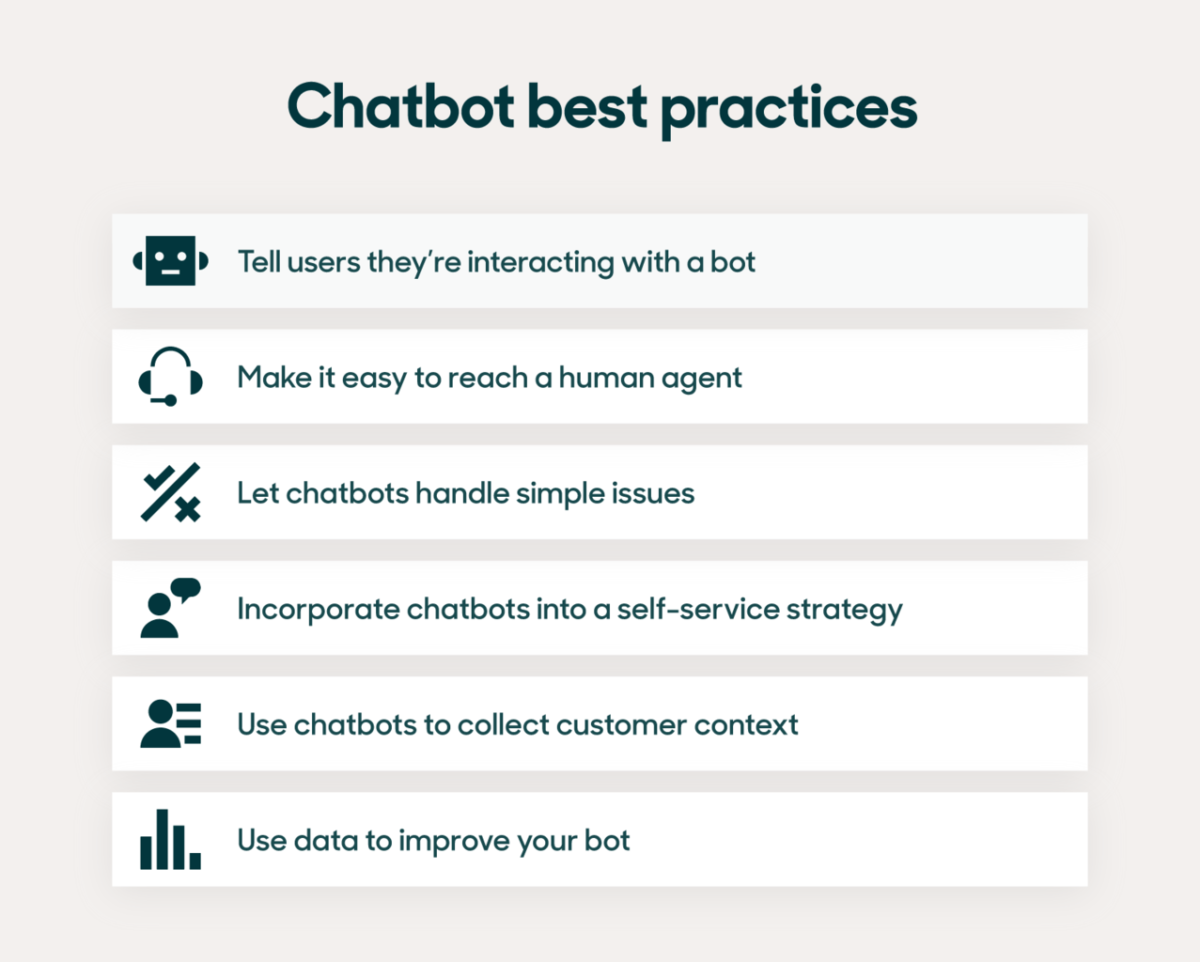
Key Benefits of Chatbot Marketing
So, why should you consider incorporating chatbots into your digital marketing strategy? Great question! There are numerous benefits to using chatbot marketing, and I’m excited to share some of the top reasons with you:
1. Improved customer service
Chatbots offer fast and efficient support, answering questions and resolving issues in real-time. This not only helps keep your customers happy but also frees up your support team to focus on more complex issues that require a human touch.
2. Increased engagement and conversions
Chatbots can engage with your audience in a personalized and interactive way, leading to higher engagement rates and more conversions. After all, who doesn’t enjoy a little one-on-one attention?
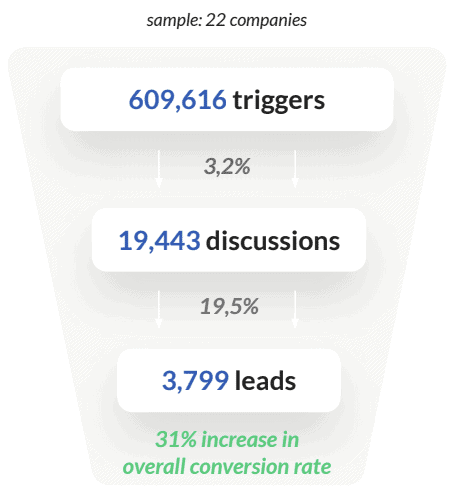
3. Cost-effectiveness
Implementing chatbots can be more cost-effective than hiring additional customer support or sales staff. Plus, they can handle multiple conversations at once and work around the clock, making them a smart investment for businesses of all sizes.
4. Access to valuable data
Chatbots can collect loads of useful data from customer interactions, providing insights that can help you fine-tune your marketing strategies and better understand your audience’s needs and preferences.
As you can see, chatbot marketing offers numerous benefits that can help you elevate your digital marketing game and create a more satisfying experience for your customers.
Examples of Chatbot Marketing
Now that we’ve covered the benefits of chatbot marketing, let’s take a look at a couple of real-life examples to see how businesses are using chatbots to up their marketing game:
Example 1: eCommerce business using chatbots for personalized product recommendations
Picture an online clothing store with a chatbot that helps shoppers find the perfect outfit. The chatbot asks questions about the customer’s preferences, style, and size, and then suggests items based on their responses. This personalized touch makes customers feel valued and more likely to complete a purchase.
Example 2: Healthcare organizations using chatbots for appointment scheduling
Imagine a healthcare provider with a chatbot that allows patients to easily book, reschedule, or cancel appointments. The chatbot can also answer frequently asked questions about the provider’s services, office hours, and insurance coverage, saving patients time and making their experience more seamless.
These examples showcase how chatbots can be tailored to meet the unique needs of different industries and help businesses create a more engaging and efficient customer experience.
The possibilities are truly endless!
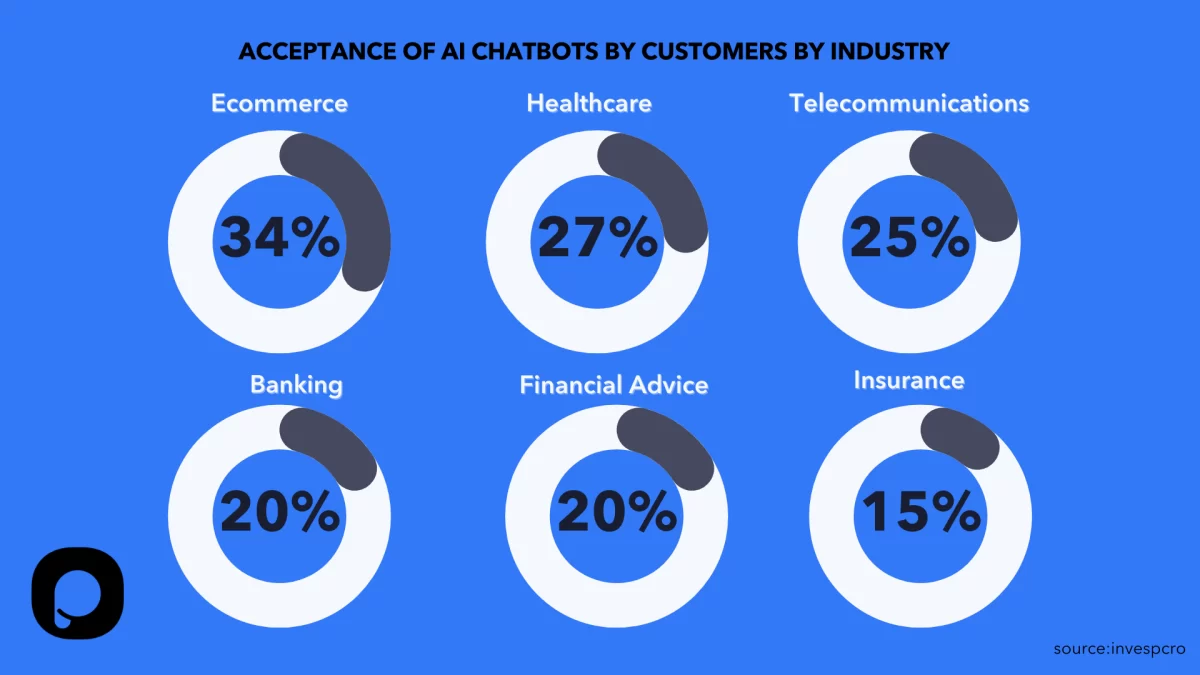
Ready to create your own chatbot but feeling a bit overwhelmed? No worries! There are plenty of chatbot marketing tools out there to help you get started, even if you’re not a coding whiz.
Here are a couple of my favorites:
Platforms for creating chatbots without coding
Tools like ManyChat, MobileMonkey, or Chatfuel make it super easy for you to build chatbots with a simple drag-and-drop interface. These platforms come with pre-built templates and allow you to create customized conversation flows that suit your business needs. Trust me, you’ll be a chatbot pro in no time!
Analytics tool for tracking chatbot performance
Once your chatbot is up and running, you’ll want to keep an eye on how it’s performing. Tools like Botanalytics or Dashbot provide detailed insights into metrics like engagement rates, user satisfaction, and more. These analytics will help you fine-tune your chatbot and make it even more effective.
With the right tools in your arsenal, creating and optimizing a chatbot for your business becomes a much more manageable task.
Advantages and Disadvantages of Chatbot Marketing
As with any marketing tool, chatbots have their fair share of pros and cons. To give you a balanced perspective, let’s take a look at some of the key advantages and disadvantages of chatbot marketing:
Advantages
- 24/7 availability: Chatbots are always ready to help, no matter the time or day. This means your customers can get the assistance they need whenever they need it, which is a huge plus in today’s fast-paced world.
- Instant responses: Chatbots can provide answers and solutions in real time, reducing wait times and keeping customers engaged.
- Scalability: Chatbots can handle multiple conversations at once, allowing you to efficiently manage a growing customer base without increasing your support staff.
Disadvantages
- Limited understanding: Chatbots, while smart, can sometimes struggle to understand complex or ambiguous queries. This can lead to frustration for users who may need to rephrase their questions or reach out to a human agent for help.
- Potential privacy concerns: Since chatbots collect user data, there’s a chance that privacy concerns may arise. It’s important to have clear privacy policies in place and ensure your chatbot complies with relevant data protection regulations.
By weighing the pros and cons, you can make an informed decision on whether chatbot marketing is the right fit for your business and how to best implement it to reap its benefits while minimizing potential drawbacks.
Chatbots for B2B Marketing
When it comes to B2B marketing, chatbots can be a real game-changer, helping businesses build relationships with potential clients and streamline their sales process.
Let’s check out some of the ways chatbots can make a big impact in the B2B world:
1. Lead qualification
Chatbots can save your sales team loads of time by pre-qualifying leads through a series of questions. By gathering information like company size, budget, and needs, chatbots can help identify high-potential leads that are worth pursuing.
2. Nurturing and follow-ups
Keeping in touch with potential clients is crucial in B2B marketing, and chatbots can lend a helping hand by sending personalized follow-up messages or sharing relevant content. This keeps your brand top of mind and helps build trust with your prospects.
3. Customer support
B2B clients often have unique and complex needs, and chatbots can help provide quick answers to their questions. By offering efficient support, you can ensure your clients are satisfied and more likely to continue doing business with you.
So, if you’re in the B2B space, don’t underestimate the power of chatbots! They can be a valuable asset in nurturing leads, closing deals, and maintaining strong relationships with your clients.
Chatbots for B2C Marketing
Now, let’s talk about how chatbots can work their magic in the world of B2C marketing. With their engaging and personalized approach, chatbots can help businesses create memorable experiences for their customers.
Here are some ways chatbots can shine in B2C marketing:
1. Product discovery
Chatbots can help customers navigate your product catalog, making it easy for them to find the perfect item. By asking questions about preferences and needs, chatbots can suggest tailored recommendations that are more likely to lead to a sale.
2. Promotions and offers
Who doesn’t love a good deal? Chatbots can share personalized promotions or special offers with your customers, encouraging them to take advantage of exclusive savings and boosting your sales.
3. Order tracking and updates
B2C customers often have questions about their orders, and chatbots can provide real-time updates on order status, shipping details, and more. This helps to ease customers’ minds and create a seamless shopping experience.
4. Gathering feedback
Chatbots can collect valuable feedback from your customers, helping you understand their needs and preferences. This insight can be used to improve your products and services, ensuring your customers stay loyal to your brand.
Clearly, chatbots can play a big role in B2C marketing, helping to engage customers, drive sales, and create a delightful shopping experience that keeps them coming back for more.

Conclusion
Well, it’s been quite a journey exploring the fascinating world of chatbot marketing together. As we’ve seen, chatbots can offer a wealth of benefits for businesses of all shapes and sizes, whether in B2B or B2C marketing.
From providing top-notch customer support to driving sales and gathering valuable insights, chatbots are transforming the way we engage with our audience online.
So, why not take the plunge and give chatbot marketing a try? With the right strategy and tools, you can create a personalized, engaging experience for your customers that sets your brand apart.
As we continue to embrace the power of AI and chatbot technology, I’m confident that the future of digital marketing will be more innovative, efficient, and customer-centric than ever before.
Happy chatbot marketing!

Ali is a digital marketing blogger and author who uses the power of words to inspire and impact others. He has written for leading publications like Business2Community, Inc. Magazine, and Marketing Profs. When not writing, he enjoys spending time with his family.




